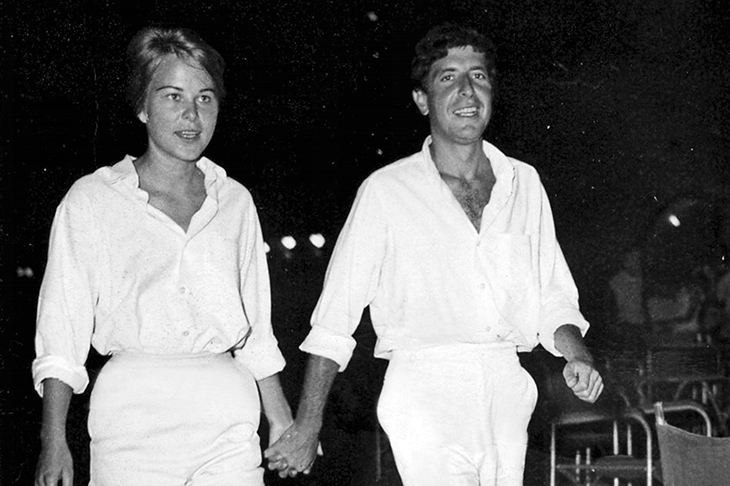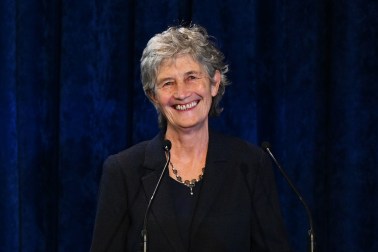Marianne & Leonard: Words of Love is Nick Broomfield’s documentary chronicling the muse-artist relationship between Marianne Ihlen and Leonard Cohen. Her name comes first because Broomfield wished to tell her story but, even so, this could be titled Marianne & Leonard: And A Lot More On Him. Hard to fathom what the point is, really. As Broomfield was also her lover, I even thought: is he not just using her all over again? Still, it will appeal to Cohen fans — and who isn’t one? — plus you do get to see him shaving while off his head on acid, which is fascinating. How did he not ever cut himself?
This is a conventional documentary combining talking heads with archive footage. We begin with Hydra, the Greek island that was an outpost for artists in the 1960s. This is where they all first met and Broomfield inserts himself in the narrative at the outset by saying, in such a sombre way I wanted to giggle: ‘I was a lost 20-year-old visiting when she befriended me. I was briefly her lover. Her smile and enthusiasm were one of a kind.’ Marianne (later immortalised in the Cohen song, ‘So Long, Marianne’) was Norwegian and running away from a husband who had been violent. She was exquisitely beautiful although she thought not, ‘which is why I always walked looking down’. (I don’t know why I found that so painful to hear, but I did). Once she hooked up with Cohen, she cleaned and cooked and shopped and encouraged and warmed his bed while he wrote those early incomprehensible novels. ‘I was his Greek muse sitting at this feet,’ she says. But the film is unequal in its attentions even before we get to the bit where Cohen becomes a star. For example, we are told all about Cohen’s childhood, which has been well documented anyhow, but learn nothing of Marianne’s. So she is not the subject of this film, but exists somewhere to the side. As per.
Marianne and Leonard were together for several years until he left her for Montreal and New York and found fame as well as many other women. This was torture for Marianne. ‘All the girls were panting for him. I was destroyed. I wanted to die.’ I kept wondering where her voice was coming from. Had Broomfield kept up with her over the years and recorded it? As it turns out, most of it comes (I think) from a Norwegian radio interview she gave in 2005, which we should have been told. I always want to know exactly what I’m seeing. And hearing.
The second half of the film is almost entirely about Cohen’s career trajectory, with Marianne barely getting a look in. That said, she does pop up in Broomfield’s life a couple of times, once while he was living in student digs when she stayed with him and encouraged him to make his first film. At such junctures he presents flattering photographs of himself looking all broodingly handsome, and I felt uncomfortable. There is just something distasteful about hawking a relationship with someone whose background you can’t be arsed to recount, assuming you ever asked about it in the first instance.
Really, it is hard to fathom what the point of this is beyond, say, noting that the Hydra survivors have aged quite badly so, kids, stay out the sun. It would be easier if I thought Cohen had ruthlessly exploited Marianne. He could be cruel, but he also could be tender. When he heard she was dying he wrote her that magnificent letter — ‘Well, Marianne, it’s come to this time when we are really so old… I think I will follow you very soon’ — although whether Broomfield should have filmed it being read out to her, when she only had a few days left… it felt horribly invasive. Also, a film that is intended to be about someone who you then have to go and look up is not a successful one. Still, you do get to see Cohen shaving while off his head on acid. So there is that.






Comments